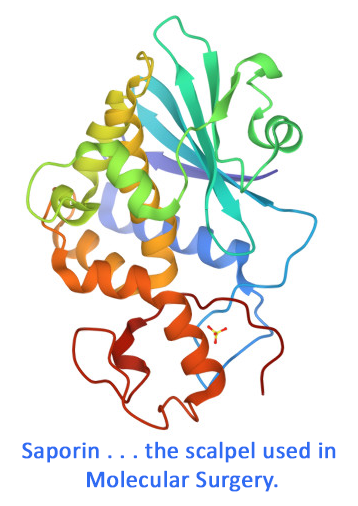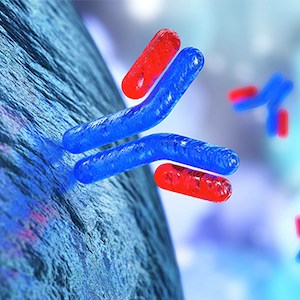The thyrotropin receptor (TSHR), a G-protein coupled, seven-transmembrane receptor, is present on the basal surface of thyroid follicular cells. It is involved in regulating thyrocyte cell growth and function by mediating thyroid-stimulating hormone (TSH) action. The TSHR is also the target autoantigen in autoimmune thyroid diseases. Autoantibodies to the TSHR that stimulate cAMP production in thyrocyte cells, called thyroid stimulating antibodies (TSAb), are responsible for the hyperthyroidism of Graves’ Disease. Another class of autoantibodies that block the binding of TSH to the TSHR, thyroid-blocking antibodies (TBAb), may mediate the hypothyroidism associated with Hashimoto’s thyroiditis, primary myxoedema, and neonatal hypothyroidism. Studies indicate that these autoantibodies interact primarily with the extracellular region of the TSHR.
This antibody recognizes the extracellular domain of the human TSH receptor (TSHR). The murine monoclonal antibody A9 is specific for residues147-228 of the TSHR. This epitope is localized in the middle regions of the extracellular domain of the TSHR, an area that may be exposed at the surface of native TSHR. It was produced in mouse by immunization with a recombinant GST-TSHR fusion protein, then construction of a hybridoma with the non-immunoglobulin-secreting myeloma cell line X63-Ag8-653. Amino acids found in the middle region of the TSHR, residues 147-228, were used to construct the fusion protein.
Applications include immunoblotting, immunohistochemistry, immunoprecipitation, and ELISA.
keywords: thyrotropin receptor, tshr, tsh, thyroid-blocking antibodies, TBAb, Anti-TSHR, Anti-TSH Receptor, Anti-Thyrotropin Receptor



Reviews
There are no reviews yet.